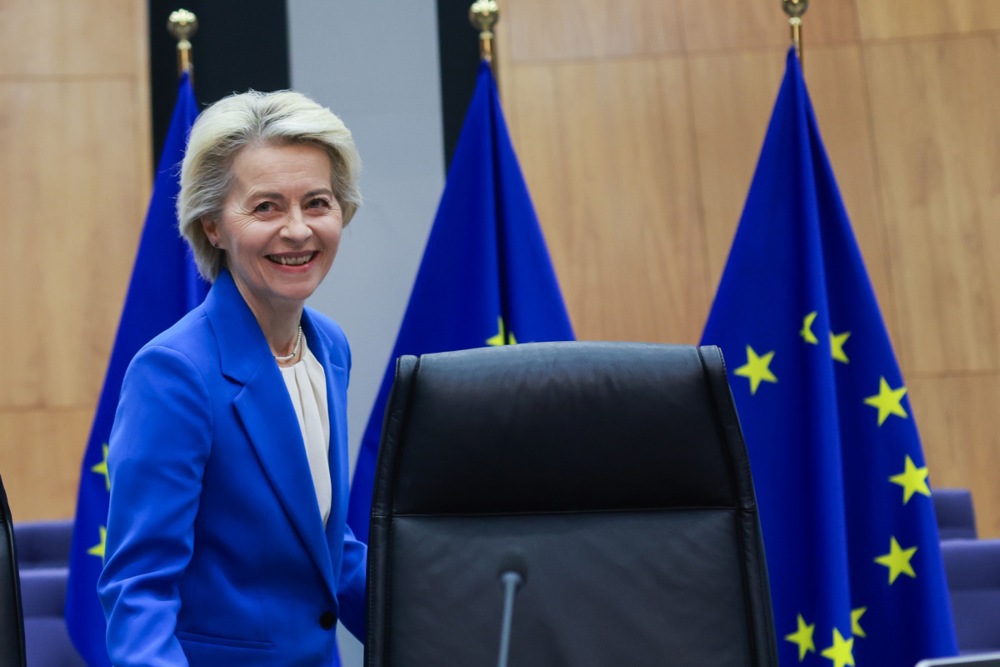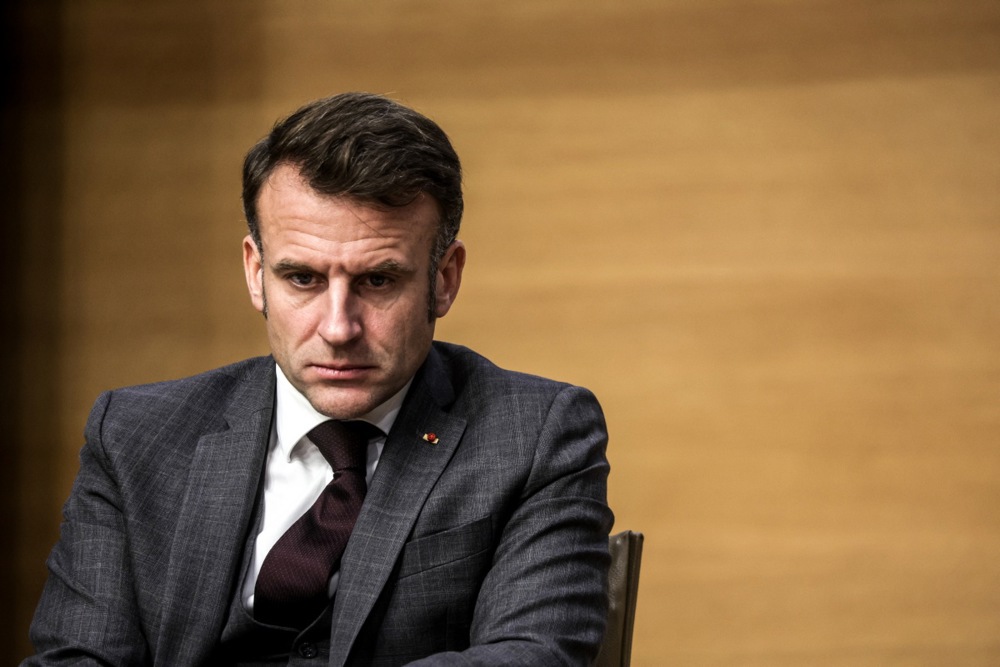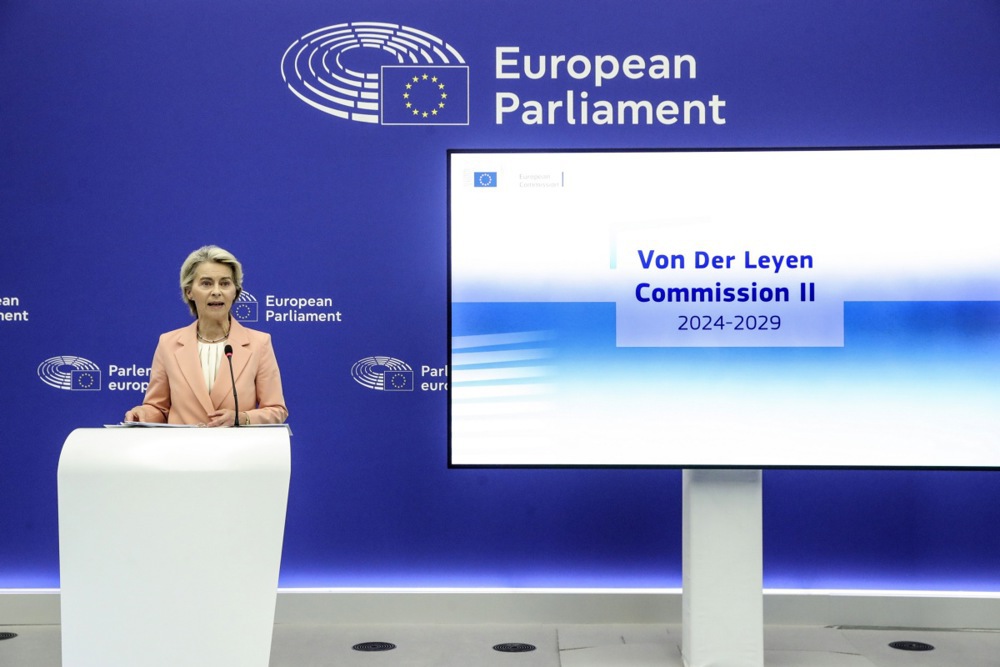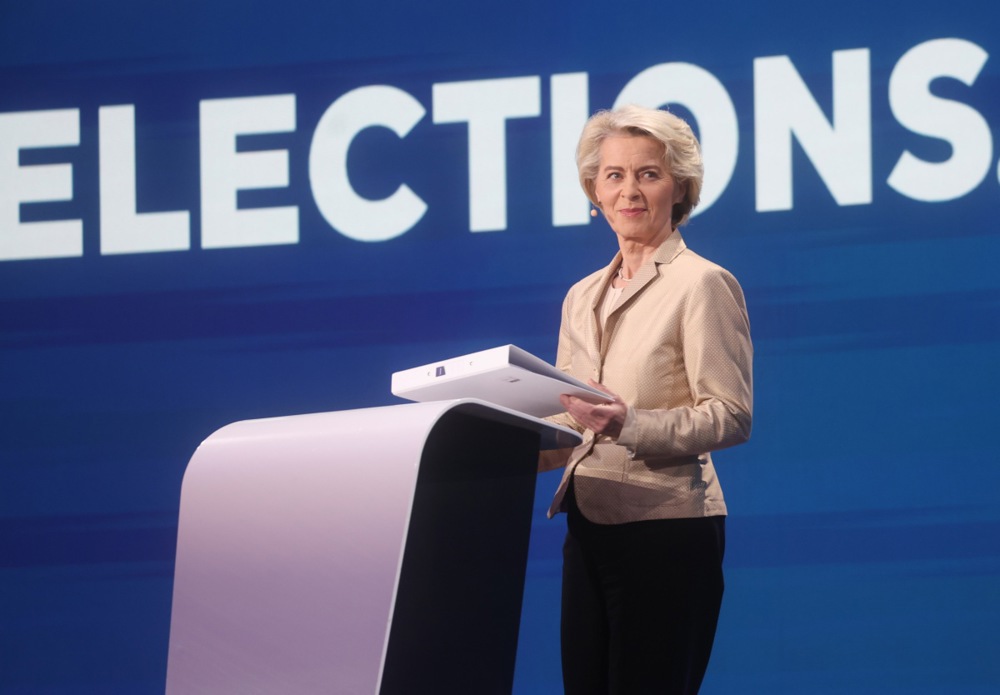The National Federation of Agricultural Holders’ Unions (FNSEA) and Young Farmers (CNJA) union announced nationwide protests to take place on December 9 and 10, accusing von der Leyen of putting corporate interests above those of farmers and democratic principles.
“Not only is this validation a provocation for European farmers, who maintain the highest production standards in the world, but it is also a denial of democracy,” an FNSEA and CNJA joint statement declared on December 6.
The unions lashed out at von der Leyen, alleging she prioritised “the particular interests of the German car industry” over European food sovereignty and climate commitments.
They claimed that the EC chief had “betrayed European farmers” during the EU-Mercosur summit in Uruguay, which she attended on December 5 and 6.
European Commission President Ursula von der Leyen has arrived in Uruguay, signalling a last effort to finalise the long-delayed European Union-Mercosur trade agreement. https://t.co/w3GFNaS1rs
— Brussels Signal (@brusselssignal) December 5, 2024
French President Emmanuel Macron echoed the discontent, stating that the fight to oppose the deal was not over.
“The Commission has completed its negotiations with Mercosur, which is its responsibility, but the agreement has neither been signed nor ratified,” he said on December 6.
While the commission may have finalised negotiations, the deal still requires ratification by at least 15 EU member states representing 65 per cent of the bloc’s population, as well as a majority in the European Parliament.
Macron, though, now faces the uphill battle to form a deal-blocking coalition.
To do so, France will need to align with at least three other member states representing 35 per cent of the EU population. Poland has already voiced its objections.
Italy may follow, with Italian officials declaring recently that “the conditions are not met to subscribe to the current text”.
The Polish Government has adopted a resolution committing it to opposing the free trade agreement between the European Union and Mercosur. https://t.co/0AqNZcs41i
— Brussels Signal (@brusselssignal) November 27, 2024
Still, EU heavyweights such as Germany and Spain have remained supporters of the deal, advocating for the benefits of a market that would encompass more than 700 million consumers. They also have backed the elimination of customs duties on 90 per cent of traded goods between EU and Mercosur countries, which include Argentina, Bolivia, Brazil, Paraguay and Uruguay.
On December 6, German Chancellor Olaf Scholz said: “After more than 20 years of negotiations, the Mercosur countries and the EU have reached a political agreement. An important obstacle to the agreement has been overcome. This will create a free market for more than 700 million people along with more growth and competitiveness.”
Opposition to the Mercosur deal has extended beyond farmers and some member states.
The European Consumers’ Association (BEUC) has criticised the agreement for what it said was the undermining of sustainability goals and quality standards, citing the EU’s recent suspension of Brazilian beef imports due to hormone contamination.
“Consumers expect their food to meet the same high standards as those produced in the EU, but this deal boosts trade in products that fail to comply,” said BEUC director general Agustín Reyna on November 13.
He claimed that the agreement jeopardised EU climate ambitions, shifting focus away from sustainable consumption and healthier diets.
Reyna argued that trade policy had to align with the EU’s “green” transition goals, adding: “Today, trade policy clashes with our sustainable consumption goals.”
The Mercosur deal has illustrated growing schisms within the EU on trade policy, putting the EC’s stance at odds with some member states’ positions.
Whether Macron can build a blocking coalition remains uncertain but, as protests near and opposition mounts, the Mercosur agreement may become more than just a trade spat within the bloc.





